British citizens trapped in Sudan accuse government of abandoning them
Foreign secretary warns government is ‘severely limited’ in its ability to help British nationals
British citizens trapped in Sudan have accused the government of abandoning them in a country feared to be on the brink of a prolonged civil war, as diplomats were evacuated by the British military.
Rishi Sunak announced on Sunday that UK armed forces had “completed a complex and rapid evacuation of British diplomats and their families”, following “a significant escalation in violence and threats to embassy staff”.
“We are continuing to pursue every avenue to end the bloodshed in Sudan and ensure the safety of British nationals remaining in the country,” the prime minister said.
All diplomatic staff and their families were evacuated, The Independent understands, in an operation involving more than 1,200 personnel from the Royal Marines, Royal Air Force and the 16 Air Assault Brigade, the army’s rapid-response paratrooper unit.
But there are believed to be hundreds of Britons still stuck in the northeast African nation, where at least 400 people have been killed since violence erupted eight days ago between forces loyal to the two rival generals of Sudan’s army and the RSF paramilitary force.
“The endgame is here now. We feel we need to get out,” a teacher named William told Sky News on Sunday, as British diplomats followed the lead of those who have already been evacuated to the US and Sudan’s close ally Saudi Arabia – a move that has intensified fears of a drawn-out conflict to come.
Multiple British citizens have complained of an absence of contact from the embassy, alleging that it had taken five days for the embassy to contact them with a telephone number they could use to register with the Foreign Office.
William told TheSunday Times that several people had been unable to use the number and had to ask family in the UK to call it for them and provide details on their behalf, with others left to rely on updates gleaned from the news and WhatsApp groups with fellow Britons in Sudan.
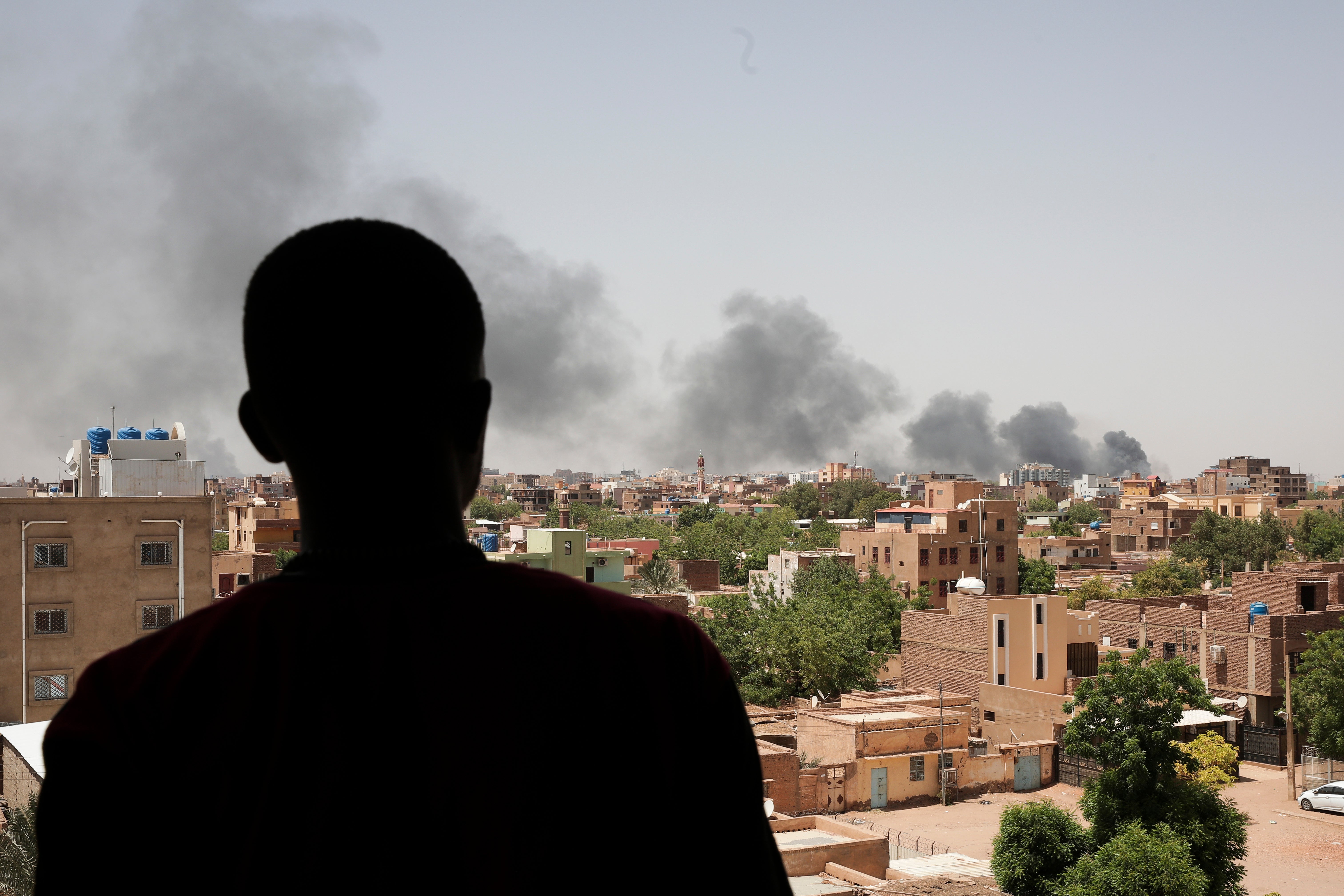
“The first five days were ridiculous, and farcical actually. I couldn’t believe they would continue to not do anything,” William told the paper.
Iman Abu Garga, a British citizen visiting Khartoum, told the BBC she had registered herself and her two children as instructed, “and since then – nothing”.
“We have no idea about timescale or timeframe. We have no idea what it’s going to look like. Are we going to be airlifted out of Khartoum airport? Are we going to have to go by road? It’s just utterly frustrating that there is no human contact whatsoever,” she said.
William added that the capacity of the embassy to help was “tiny”, saying: “There is someone who we have direct contact with, but there is scarcity of anybody above her in the embassy.”
Since the violence broke out last Saturday, ambassador Giles Lever and his deputy have been overseas, but a Foreign Office spokesperson told The Independent that “senior-level cover was in place at the time violence began, as is standard practice”.
A source at the department told The Times that Lever’s presence in London during the crisis had been invaluable. But the report carried quotes from another Whitehall source who described the unfolding situation in Khartoum as “Kabul all over again”.
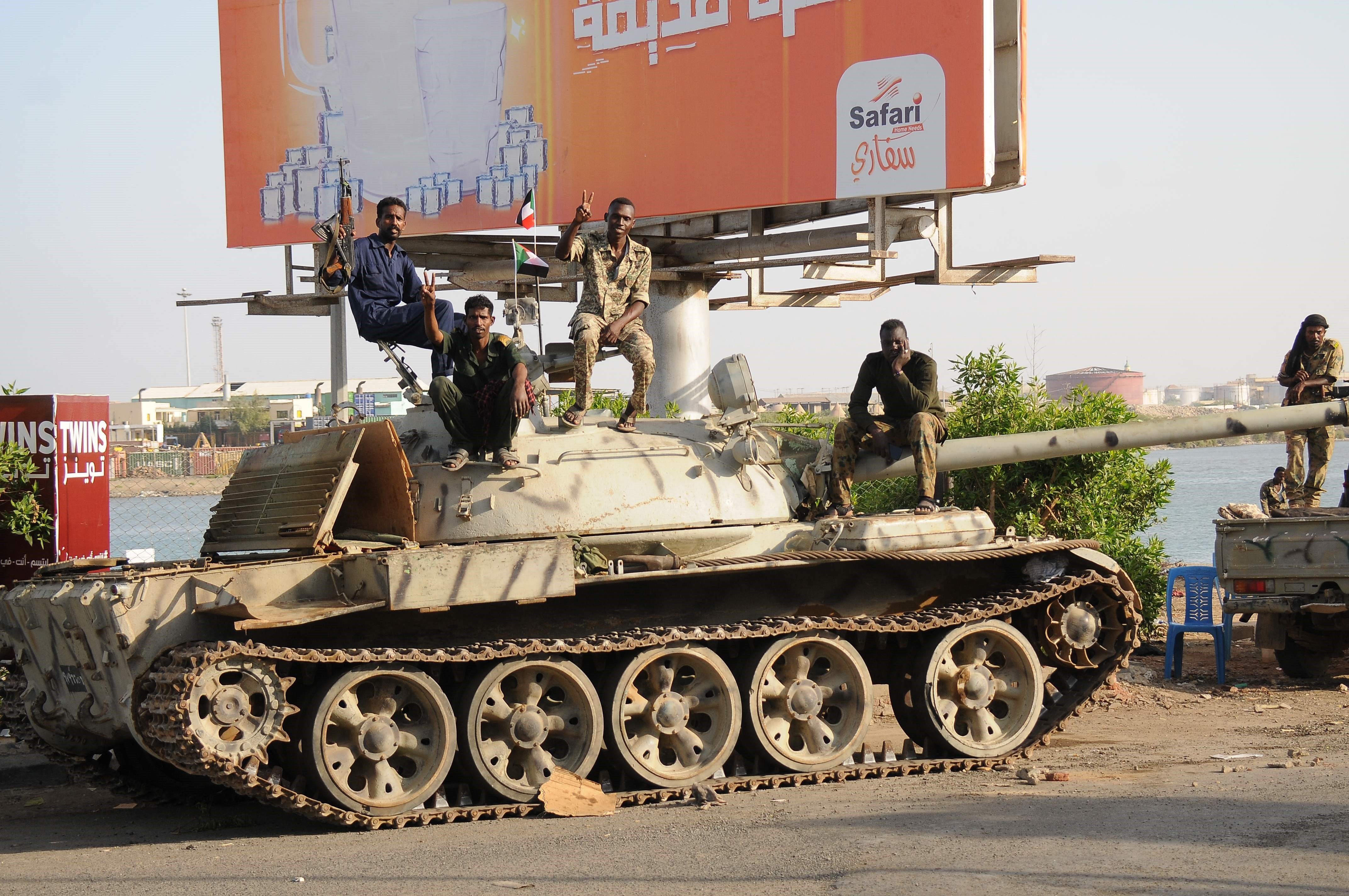
Addressing the question of why diplomats had been prioritised for evacuation, foreign secretary James Cleverly said Khartoum embassy staff had “been unable to discharge their functions because of the violence in that city”.
“So, both to fulfil our duty to protect them as their employer, we are relocating them to other embassies in the region. In order to continue to protect British nationals, we will of course be enhancing our teams in the region. This is following the pattern we have seen of our international friends and colleagues.
But he added: “We will continue on our diplomatic effort to bring this conflict to a swift conclusion because until that happens, we are severely limited in our ability to provide assistance to British nationals.”
The British evacuation came after fewer than 100 of their American counterparts were rescued in three US Chinook helicopters, with more than 150 people – mostly citizens of Gulf countries, alongside Canadian, Pakistani and Egyptian nationals – were evacuated by sea on Saturday to Jeddah.
France, Turkey, the Netherlands, Italy, Belgium and Japan have also said they had begun operations to evacuate their citizens, as gunshots rang out across the Sudanese capital.
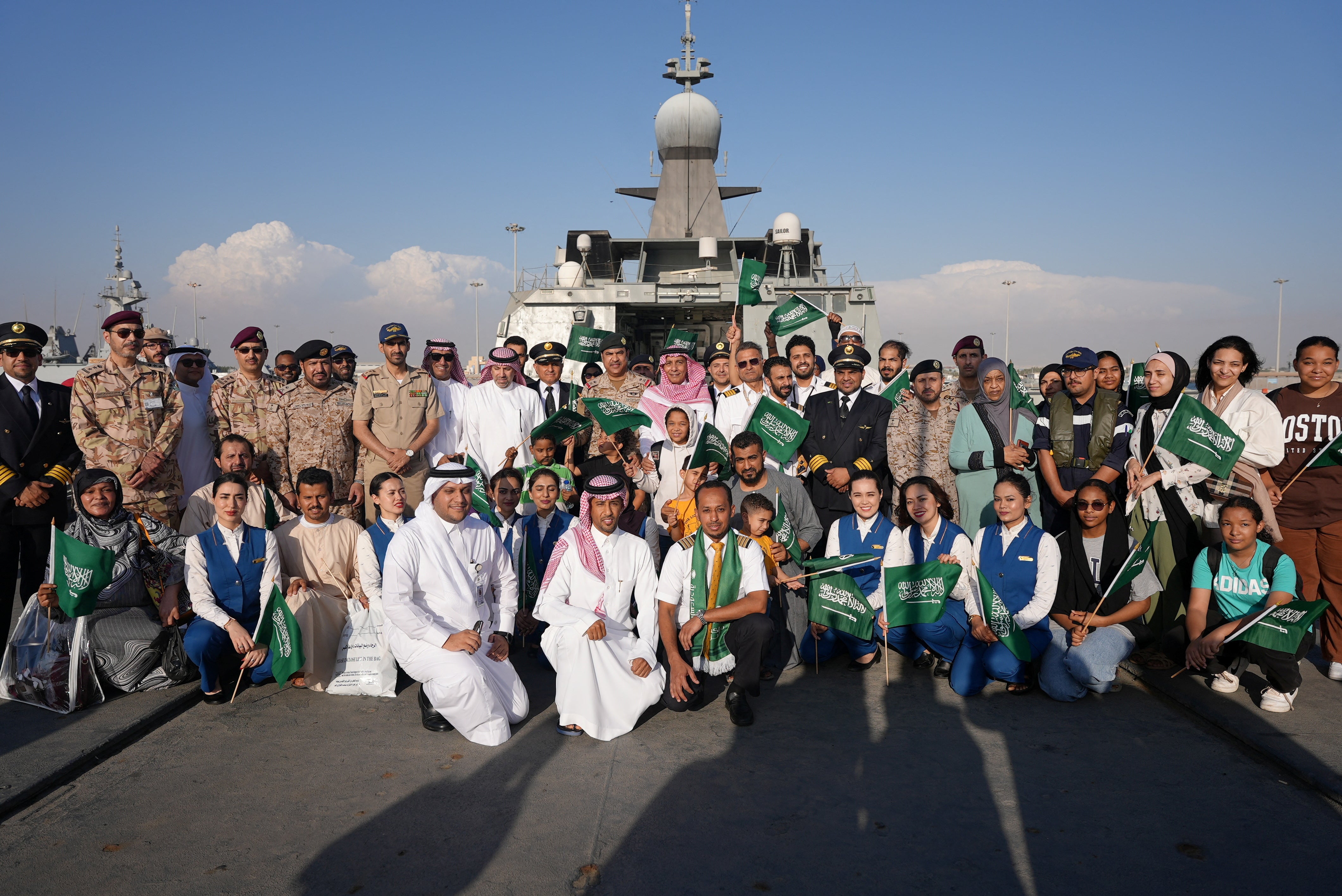
However, both warring factions accused each other of attacking a French evacuation convoy on Sunday, claiming that a French national was wounded – a claim on which Paris is yet to comment.
Announcing the UK’s successful evacuation effort, Mr Sunak urged those fighting “to lay down their arms and implement an immediate humanitarian ceasefire to ensure civilians can leave conflict zones”, as he praised the commitment of Britain’s diplomats and bravery of those involved in the operation.
A Foreign Office spokesperson said: “The safety of all British nationals in Sudan continues to be our utmost priority ... the UK government will do all we can to ensure the safe passage of our citizens in what remains a very challenging context.
“In the meantime, our advice to British nationals is to shelter in place and contact the Foreign Office to register your location and contact details.”
The fighting broke out in Khartoum, along with its adjoining cities of Omdurman and Bahri, and other parts of the country on 15 April, four years after long-ruling military autocrat Omar al-Bashir was deposed in a coup, and later convicted of corruption.
The army and RSF had together carried out another coup in 2021, but fell out during negotiations over plans to form a civilian government and integrate the RSF into the armed forces.
Join our commenting forum
Join thought-provoking conversations, follow other Independent readers and see their replies
Comments

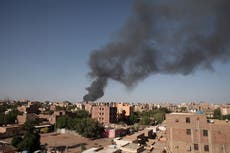
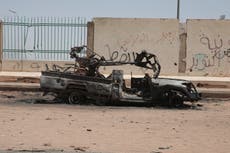
Bookmark popover
Removed from bookmarks